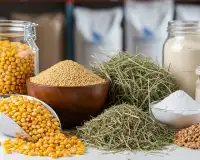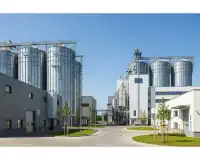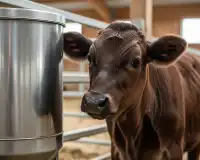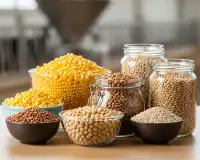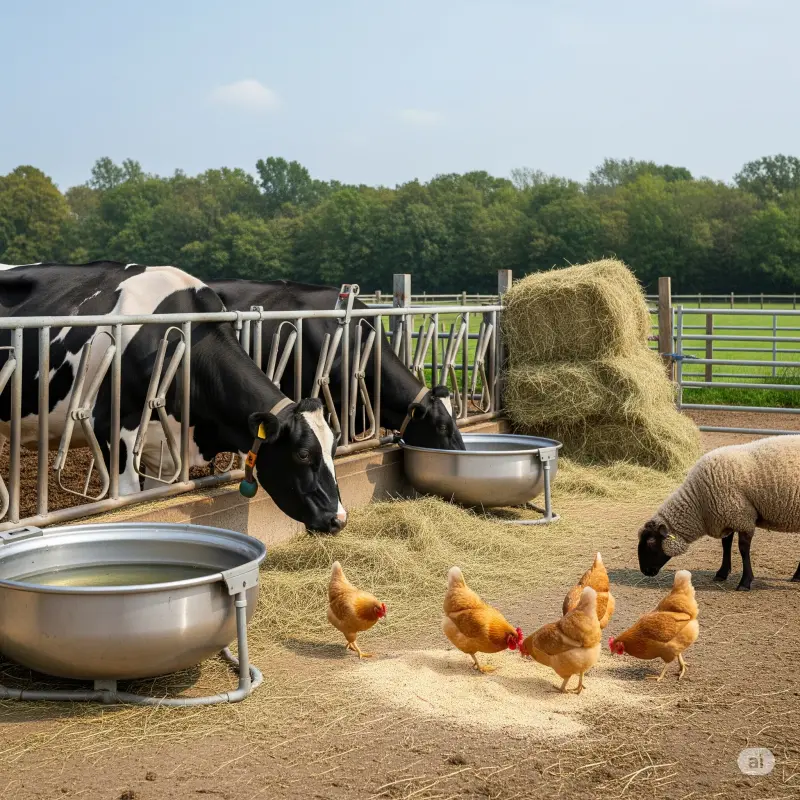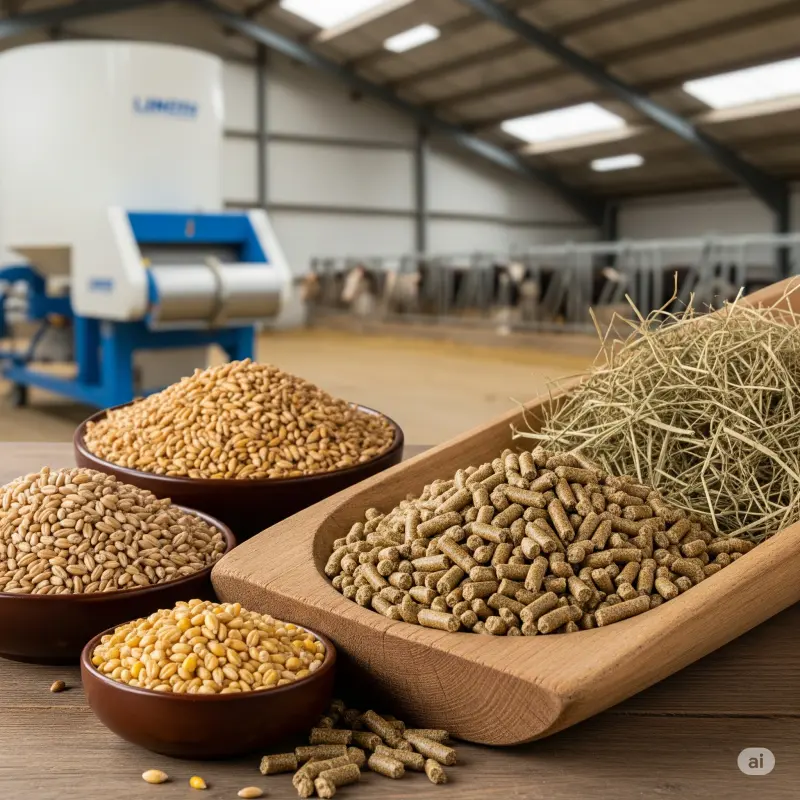What Are Feed Additives for Beginners?
Discover feed additives used in animal nutrition! In this guide, learn about the functions and purposes of different additives, from digestive regulators to mold inhibitors, vitamins, and metabolism regulators.
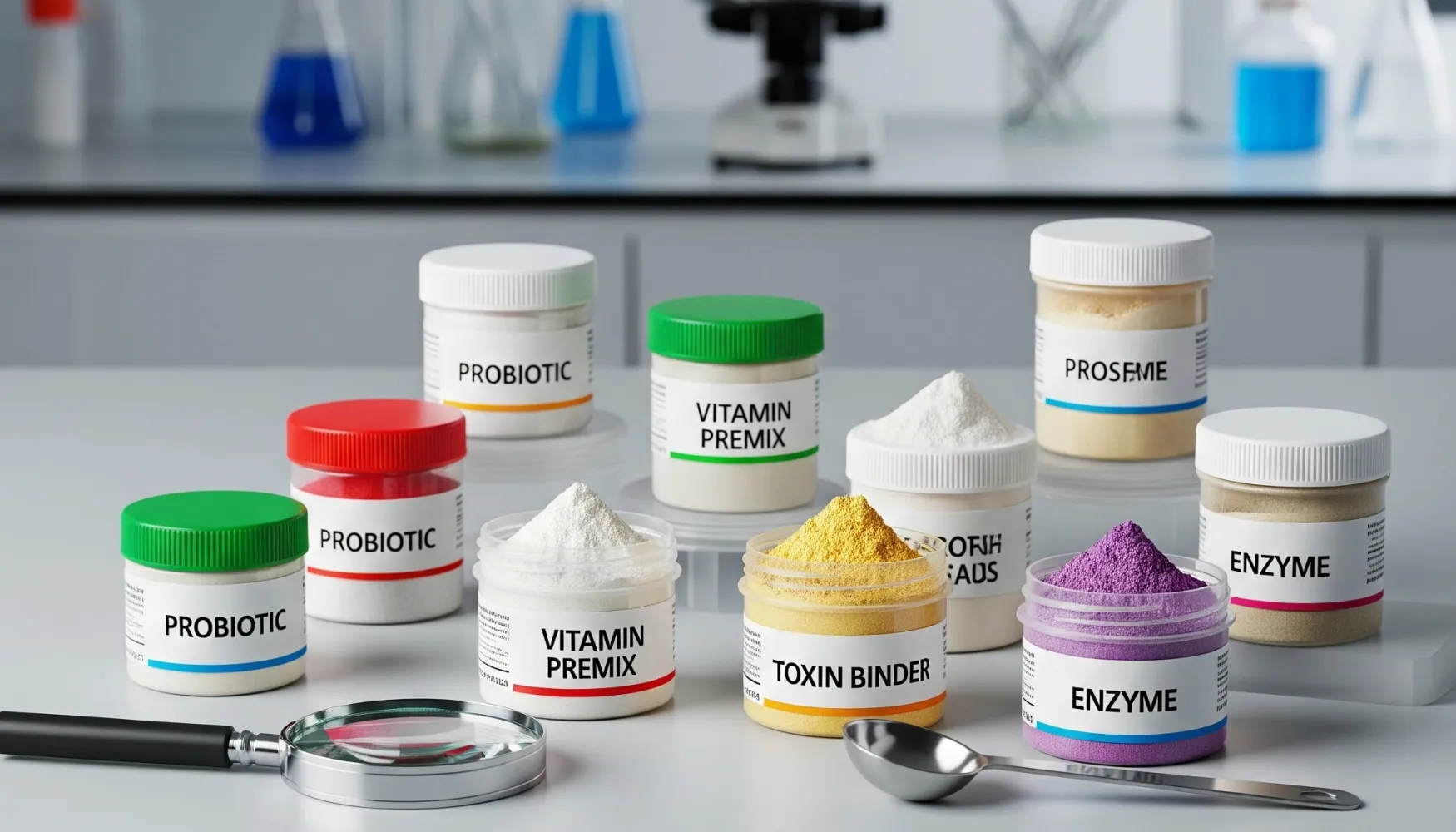
What is a Feed Additive?
**Feed additives** are substances added to animal rations in small amounts, possessing little or no nutritional value, but positively affecting animals' feed utilization, health, growth, productivity, or feed quality. They are generally used on the recommendation of a veterinarian or animal nutrition specialist.
Main Purposes of Feed Additives:
Feed additives are used for various purposes:
- Nutritional Enhancement: To increase the nutritional value of the feed (e.g., by increasing digestibility).
- Performance Improvement: To boost production performance such as growth rate, milk, meat, or egg yield.
- Health Improvement: To support gut health, strengthen the immune system, and increase resistance to diseases.
- Feed Quality Preservation: To prevent spoilage or reduction in nutrient value of the feed (e.g., mold inhibitors).
- Improving Feed Characteristics: To enhance the palatability, homogeneity, or flowability of the feed.
Main Groups of Feed Additives and Their Functions:
Feed additives are categorized into various groups based on their functions. Here are the most common ones:
- Digestive Regulators (Probiotics, Prebiotics, Enzymes):
Additives in this group ensure that animals' digestive systems work more efficiently.- **Probiotics (Live Yeast, Bacterial Cultures):** Help balance the gut flora by adding beneficial microorganisms to the digestive system. They increase feed utilization and reduce digestive problems like diarrhea. Particularly beneficial during stressful periods (birth, transportation, feed change) or after antibiotic treatment.
- **Prebiotics (Mannan-oligosaccharides, Fructo-oligosaccharides):** Indigestible carbohydrates that promote the growth of beneficial bacteria in the digestive system. They support the immune system.
- **Enzymes (Phytase, Cellulase, Amylase, etc.):** Help digest certain feed components (e.g., plant cell walls, phytate phosphorus) that cannot be broken down by the animals' own digestive enzymes. This increases the nutritional value and digestibility of the feed.
- Acid Regulators and Mold Inhibitors:
Used to preserve feed quality and balance digestive system pH.- **Organic Acids (Formic Acid, Propionic Acid, Lactic Acid):** Prevent mold and bacterial growth in feeds and silage, extending the shelf life of the feed. They can also control the growth of harmful bacteria in the digestive system.
- **Mold Binders (Toxin Binders):** Bind mycotoxins (mold toxins) that may form in feeds, ensuring their excretion from the animal's digestive system and preventing toxins from entering the animal's body. They are vital for animal health.
- Antioxidants:
Prevent the spoilage of vitamins and fats in feeds by protecting them from oxidation. This preserves the nutritional value and palatability of the feed.- **Vitamin E, Vitamin C, Selenium, Synthetic Antioxidants:** Extend feed shelf life and support animal cell health.
- Flavors and Sweeteners:
Encourage feed intake by increasing the palatability and attractiveness of the feed, especially in newly weaned animals or in cases of poor appetite.- **Vanilla, Anise, Sugar-based Sweeteners:** Used to increase feed consumption.
- Colorants:
Primarily used in poultry feeds to achieve the desired yolk or skin color. Not common in ruminants.- **Carotenoids:** Natural colorants.
- Metabolism Regulators:
Substances that help optimize an animal's metabolism in a specific direction (e.g., growth, milk yield).- **Growth Promoters (Antibiotics, Ionophores - use may be restricted or prohibited in Turkey):** Accelerate growth by improving feed utilization and controlling the proliferation of certain intestinal bacteria. However, regulations and restrictions on antibiotic use vary from country to country.
- **Ruminal Buffers (Sodium Bicarbonate - Baking Soda):** Prevents acidosis and improves digestion, especially in cattle fed high-concentrate diets, by balancing rumen pH.
Considerations for Using Feed Additives:
- Expert Consultation: Feed additives, when used indiscriminately, can cause harm instead of benefit. They should always be used with the advice and guidance of a veterinarian or animal nutrition specialist.
- Dosage and Instructions: Strictly adhere to the dosage and usage instructions specified by the manufacturer. Overuse can lead to toxic effects, while insufficient use may prevent the expected benefits from being achieved.
- Legal Regulations: The use of feed additives is subject to different legal regulations in each country. It is important to check relevant regulations before use (especially for antibiotics and certain growth promoters).
- Storage: Additives should be stored in their original packaging, away from moisture, light, and extreme temperatures.
- Cost-Benefit Analysis: The cost and potential benefit of each additive should be carefully evaluated. The most expensive additive is not always the best; the important thing is to find what is most suitable for your animals' specific needs.
Feed additives play an important role in modern animal nutrition. However, their rational and conscious use is vital for animal health and operational profitability. With the right information and expert support, you can get the most out of feed additives.


